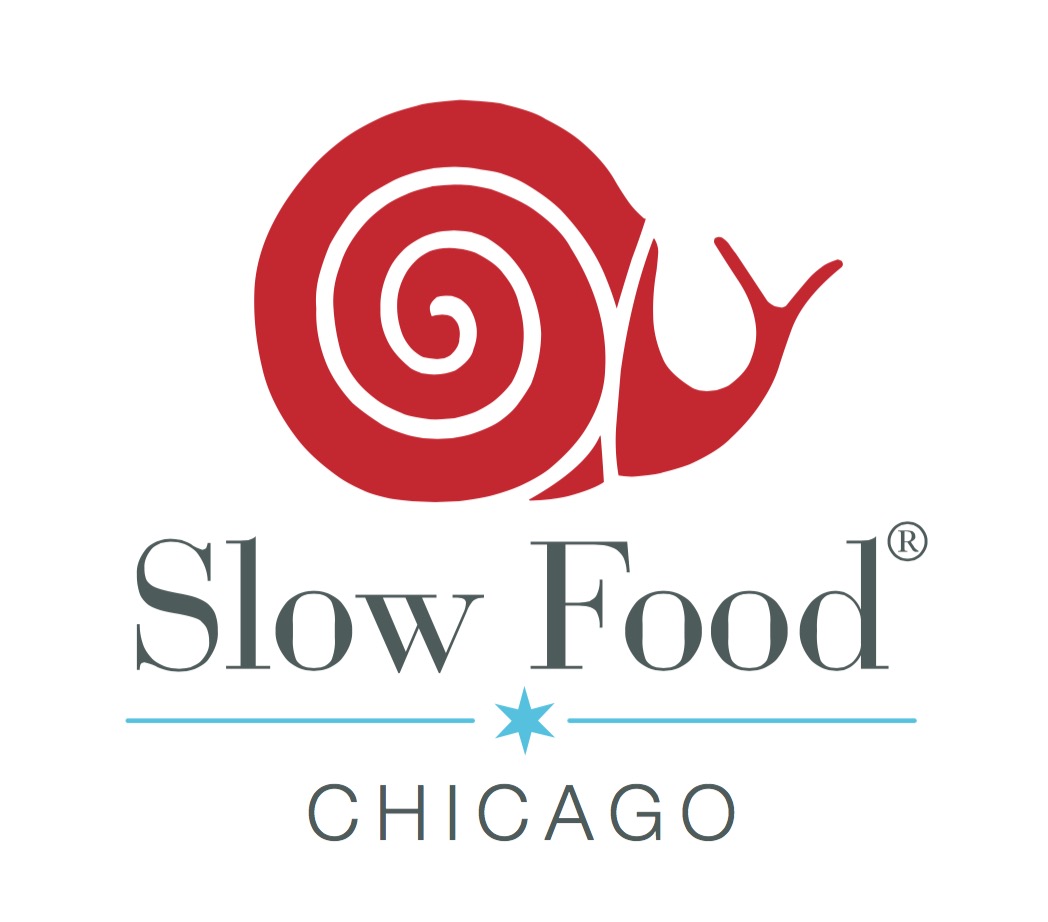Slow Chicagoan Profile : Lisa Santos of Southport Grocery & Cafe
/If you look at the staff profiles on the Southport Grocery & Cafe website, owner Lisa Santos' profile stands out not just because it's the first one listed, but also because of her recognition that food and food experiences are intricately woven into people's daily lives. A former Slow Food Chicago board member, it's no surprise that Lisa runs her business by objectives that closely mirror our mission of good, clean and fair food for all. By supporting local farmers with a fresh + seasonal menu, giving an audience to the sweat equity of artisanal producers with their grocery, and preserving flavors of peak harvest to get you through the winter, Southport Grocery & Cafe is working hard to support and highlight the fruits of local laborers. Read on for more from Lisa about how they got started and why romaine beats kale as a popular and versatile leafy green.
What was the idea behind Southport Grocery & Cafe? How did you start?
We started preserving in 2009; the recession hit everyone and we needed to look at our expenses. We were shipping great preserves from California but the price plus shipping made the products expensive. We started preserving a handful of items that year and now do well over 75 from fruits preserves, pickles, condiments + soda syrups.
What would you be doing right now on a typical workday?
Planning! There is so much planning in this business; especially for preserving, what is available from the farms and when, staffing, new product testing, etc.
What's the best part about your job? The hardest part?
Well, I have two bests: one, coming up with something new that we are excited to share with our customers; and two, a great batch of preserves that started with the perfect fruit from a farm and the well balanced preservation process.
The hardest part of my job is the overall balancing act of food costs, labor costs, and competitive pricing.
The smoked fish plate available as a brunch option at Southport Grocery & Cafe in Lakeview.
What do you think is the biggest obstacle for Chicago's food systems to overcome?
A challenging obstacle can be the City itself. There are a lot of small moving parts to operate a business here!
How does Southport Grocery's work relate to the Slow Food objectives (good, clean, + fair food)?
Southport Grocery uses good, clean and fair food whenever we can. As a matter of fact, our preserves have won three Good Food Awards! I have to say, 'whenever we can' because we need to offer a competitive price to our customers in the end.
Favorite Chicago food related social media account to follow?
What do you think should be up next for trendiest food item - kale's successor?
I would like to see romaine be more on trend... it is chock full of nutrients and it is my favorite vegetable to grill! Grilling romaine adds dimension to any salad.
What wins - avocado toast vs. artichoke toast?
Avocado for sure... I love the creaminess!
A interior view of Southport Grocery & Cafe's dining and grocery options.
Why Chicago? If not Chicago, where?
Chicago is a great city with a great food presence... we have been open for 13 years! It is amazing where Chicago has evolved to. And if not Chicago, NYC. I love that city... but I am pretty sure doing business there has even more moving parts!


















